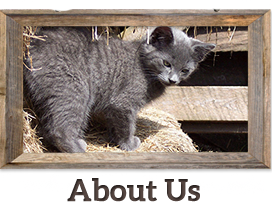Sexual Behavior in Birds
What causes sexual behavior in birds?
 Bird owners witness many different behaviors that are associated with sexual maturity and hormone fluctuations. At certain times of the year, birds are under the powerful influence of sex hormones and will behave instinctively in distinct ways that you may not have witnessed before. The behaviors will vary with species and individuals. They are not necessarily seen with every bird.
Bird owners witness many different behaviors that are associated with sexual maturity and hormone fluctuations. At certain times of the year, birds are under the powerful influence of sex hormones and will behave instinctively in distinct ways that you may not have witnessed before. The behaviors will vary with species and individuals. They are not necessarily seen with every bird.
Sexual behavior may be induced by many factors, such as seasonal changes in daylight hours and temperature, environmental influences, diet, and interactions with owners or favorite toys and objects. Wild birds (particularly parrots) normally have an intense relationship with a mate.
Humans may cause frustration or confusion in their birds with inappropriate responses to their sexual behaviors. Constant petting or stroking a bird’s back is often interpreted by a bird as mating behavior.
What kind of behaviors might I observe in my bird?
One of the most common behaviors in a sexually excited bird is regurgitation, which represents an offering of food that a bird gives to a potential mate during courtship. Budgies (parakeets), cockatiels, cockatoos, and lovebirds seem to regurgitate the most often. These birds may actually "pair bond" to a favorite toy, mirror, or other shiny, reflective surface. Remove the toy or mirror to reduce the bird’s attachment to the object.
Caution: Vomiting and regurgitation can also be signs of illness in your bird. Consult your avian veterinarian if you are unsure. In most cases where a bird is vomiting, the bird usually shakes its head from side to side and slings vomit and/or food, which then collects on the side of the cage and on the bird’s head.
Masturbation occurs in small birds (budgies, lovebirds and cockatiels) and larger birds. This behavior is more common in male birds. They may be seen rubbing their cloaca or vent (the opening from which they defecate and urinate) on their perch, a favorite toy, a shoe, or on the hands, arms, or shoulders of their favorite person. Although this behavior is relatively harmless, it should be ignored and not encouraged.
Some birds have more extreme behavior changes, including territorial aggression, screaming, and feather destructive behavior. When sexually stimulated, the bird may strut around, create a display by fanning their wing and tail feathers, become aggressive, and/or become more vocal. Some will bite and chase people around the house; others become more affectionate and loving. Female birds may even lay one or more eggs despite no male bird being present.
Some birds seek nesting places such as boxes, cupboards, closets, or drawers. You may see them chewing or shredding paper or wood, gathering items, and changing vocalizations, especially in the morning and evening.
What should I do if my bird exhibits sexual behavior?
It’s usually not necessary to correct sexual behaviors, as most birds should return to "normal" in six to eight weeks, although there are exceptions. Some birds exhibit these behaviors persistently, rather than in a normal, seasonal pattern. You may inadvertently reward sexual behavior by paying attention to it.
Discourage or ignore sexual behaviors, as they may escalate.
- Do not scratch/stroke the back, rump, or hind end, as it may sexually stimulate your bird. You may be able to hug and scratch the bird around the head, if you do it infrequently.
- If your bird is cranky, leave it alone.
- If your bird is regurgitating, you can move it to another location to help diminish the behavior.
- Ignore masturbation and do not encourage it.
- Make nesting spots and nesting materials inaccessible.
- Remove mirrors, remove toys the bird regurgitates on, and remove all types of huts and tents.
- You may be able to deter some birds from sexual behavior by shortening the indoor daylight hours to a winter-like photoperiod, usually less than six hours per day.
- Redirect your bird's attention towards toys and healthy interactive play with you.
If your bird’s behavior becomes problematic, consult an avian veterinarian or behaviorist. Your avian veterinarian may suggest changes to your cage or home environment. Behavior modification will help you avoid stimulating the bird’s behavior. In many cases, hormone therapy will be necessary to alter sexual behavior. Hormone implants may also be discussed if egg-laying or aggressive sexual behavior cannot be diminished by changing the environment.
© Copyright 2025 LifeLearn Inc. Used and/or modified with permission under license. This content written by LifeLearn Animal Health (LifeLearn Inc.) is licensed to this practice for the personal use of our clients. Any copying, printing or further distribution is prohibited without the express written consent of LifeLearn. This content does not contain all available information for any referenced medications and has not been reviewed by the FDA Center for Veterinary Medicine, or Health Canada Veterinary Drugs Directorate. This content may help answer commonly asked questions, but is not a substitute for medical advice, or a proper consultation and/or clinical examination of your pet by a veterinarian. Please contact your veterinarian if you have any questions or concerns about your pet’s health. Last updated on Sep 2, 2025.


